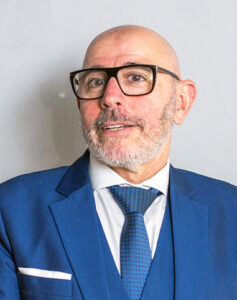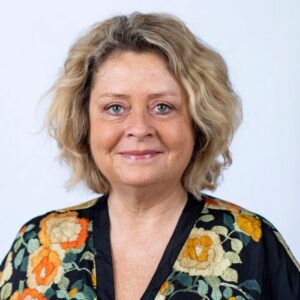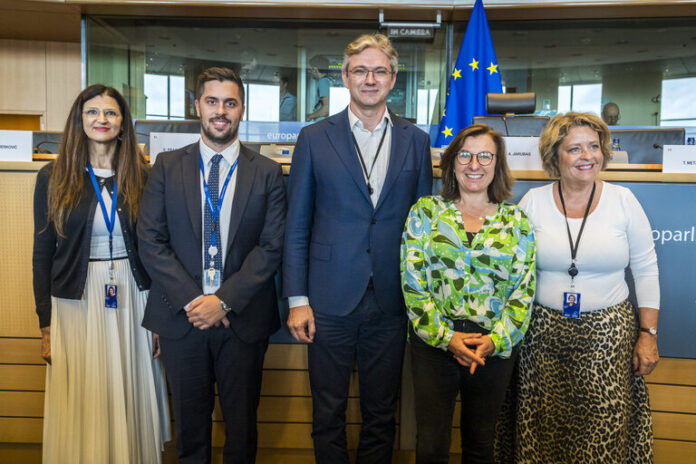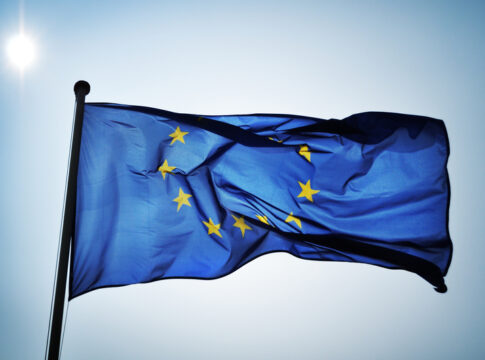As Ursula von der Leyen embarks on a new term as President of the European Commission, she has unveiled a political agenda for European health focused on building a more resilient and circular economy.
We spoke with two newly-elected Members of the European Parliament and its health sub-committee — Laurent Castillo, a French physician from the centre-right European People’s Party (EPP), and Stine Bosse, a Danish liberal (Renew) and vice-chair of the sub-committee — to understand their vision for EU’s health. Their perspectives highlight the priorities and challenges in addressing essential medicines, innovation, preventive health, and the need for public health subcommittee to operate as an independent committee.
Critical Medicines Act: reducing external dependence

One of the central pillars of von der Leyen’s new mandate is the Critical Medicines Act. The Commission’s proposal aims to tackle the alarming shortages of essential medicines and reduce Europe’s dependency on foreign sources, notably India and China, which together account for 60% of the world’s active pharmaceutical ingredients. The upcoming regulation seeks to bolster internal production and ensure a more secure and self-sufficient supply chain.
Castillo supports the initiative, emphasizing the importance of stimulating European production of critical medicines. “We must relocate our drug production to Europe, especially for essential drugs like analgesics and antibiotics”, Castillo says.
Bosse also highlights the importance of internal production. She advocates for strategic tariffs to protect European industries from unfair competition, particularly from countries like China, where state aid heavily subsidises national businesses. “I want to make sure that there are tariffs that protect our businesses”, Bosse explains. She points out the necessity of fostering a competitive environment that balances business interests with social welfare.
Innovation and research
In her political agenda, Von der Leyen emphasised the importance of innovation, advocating for boosting investments in research and development, particularly in digital technologies and green industries, to maintain Europe’s competitive edge and ensure sustainable economic growth.

Laurent Castillo emphasises the necessity for more extensive research in several critical areas, such as antibiotics, innovative biotherapies and advanced treatments. He stresses the importance of retaining talent within Europe, encouraging collaborative public-private partnerships to drive medical innovation. “We must ensure our researchers do not migrate to the US, which causes us to lose valuable intellectual resources,” Castillo asserts.
Bosse is also concerned about workforce differences within EU countries, bringing in her social welfare perspective: “We need more skilled nurses and doctors, not only in Denmark, but also in Romania, in Poland”, adding “we need to collaborate with each other, as Europeans”. Bosse advocates for increased digital innovation in healthcare, which she believes is essential for the future of European health systems.
Preventive health
Preventive health measures are a major focus of von der Leyen’s agenda, with particular attention to mental health for children and young adults, as well as cardiovascular and degenerative diseases. This includes continuing the Europe’s Beating Cancer Plan and prioritizing cardiovascular health, a key focus of the Hungarian Presidency of the Council for the second half of 2024.
Castillo advocates for a stronger emphasis on preventive health, particularly in education and lifestyle changes. “Preventive measures are crucial for improving public health and reducing the burden of diseases,” he asserts. “While significant progress has been made in cancer prevention, there’s still much to be done in areas like cardiovascular health and mental well-being.”
Less rules
Castillo and Bosse also want “less rules” for EU’s health, echoing von der Leyen’s views. The Commission is striving for a more agile regulatory environment, proposing a “One In, One Out” principle to reduce administrative burdens and streamline EU regulations.
Bosse calls for smarter regulation to support competition and economic growth in Europe, explaining “We talk about the ‘One market’, but if we have a directive, it is currently implemented in different ways in 27 countries”. Castillo highlights the importance of simplifying clinical research regulations to speed the development of new treatments: “Companies are choosing to test new drugs in the United States, in China”.
Health budget
In May, the director-general of the Commission’s health service (SANTE), Sandra Gallina, warned that the 5.3 billion health programme, running from 2021-2027 as EU’s response to COVID-19, was likely a “one-off”. Her words reverberate April’s comments from the Commissioner for Health, Stella Kyriakides, warning of the need to cut EUR 1 billion from that fund, alluding to the need to find resources for Ukraine.
Both Bosse and Castillo advise against cuts in the EU’s health budget: “These are difficult decisions, but we need to put that money back in health”, urges Castillo. Bosse, who is also in the budget committee, agrees, but with a more nuanced approach: “We have to think how we spend. We can do collective investments together on a European level, finding ways to fund strategic areas without cutting health budgets,” she explains, adding “But we have to earn the money before we can spend it. And a lot of people forget that.”
A separate health committee?
Lastly, both Bosse and Castillo advocate for a dedicated health committee within the European Parliament. Bosse supports the idea of creating a separate committee to focus on health issues, while Castillo believes that a dedicated health committee would ensure that health-specific matters, such as medication and research, receive adequate attention and resources. The question is planned to be rediscussed after the summer break, with the EPP’s coordinator Peter Liese advocating for a separation before the end of the year.






